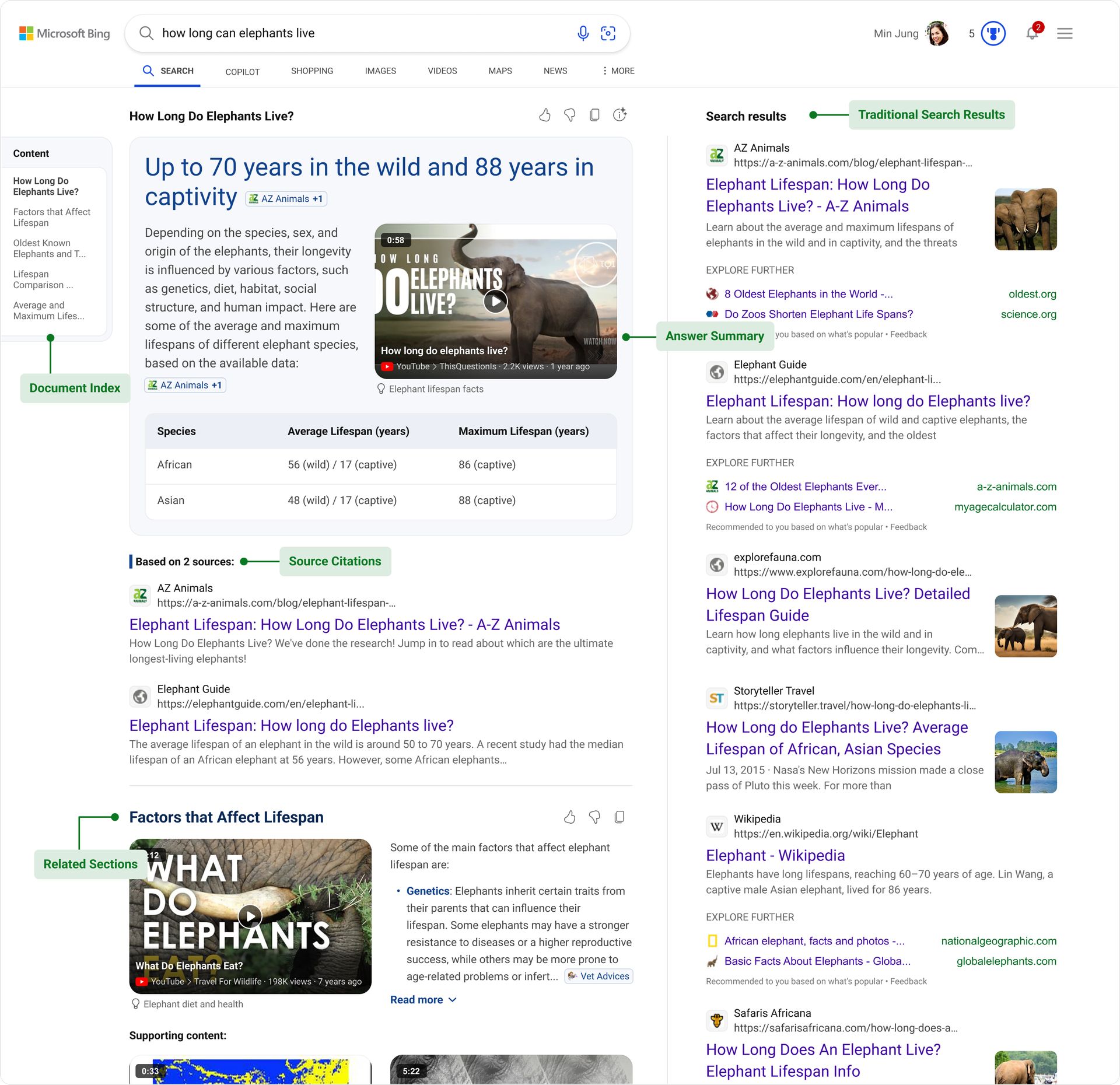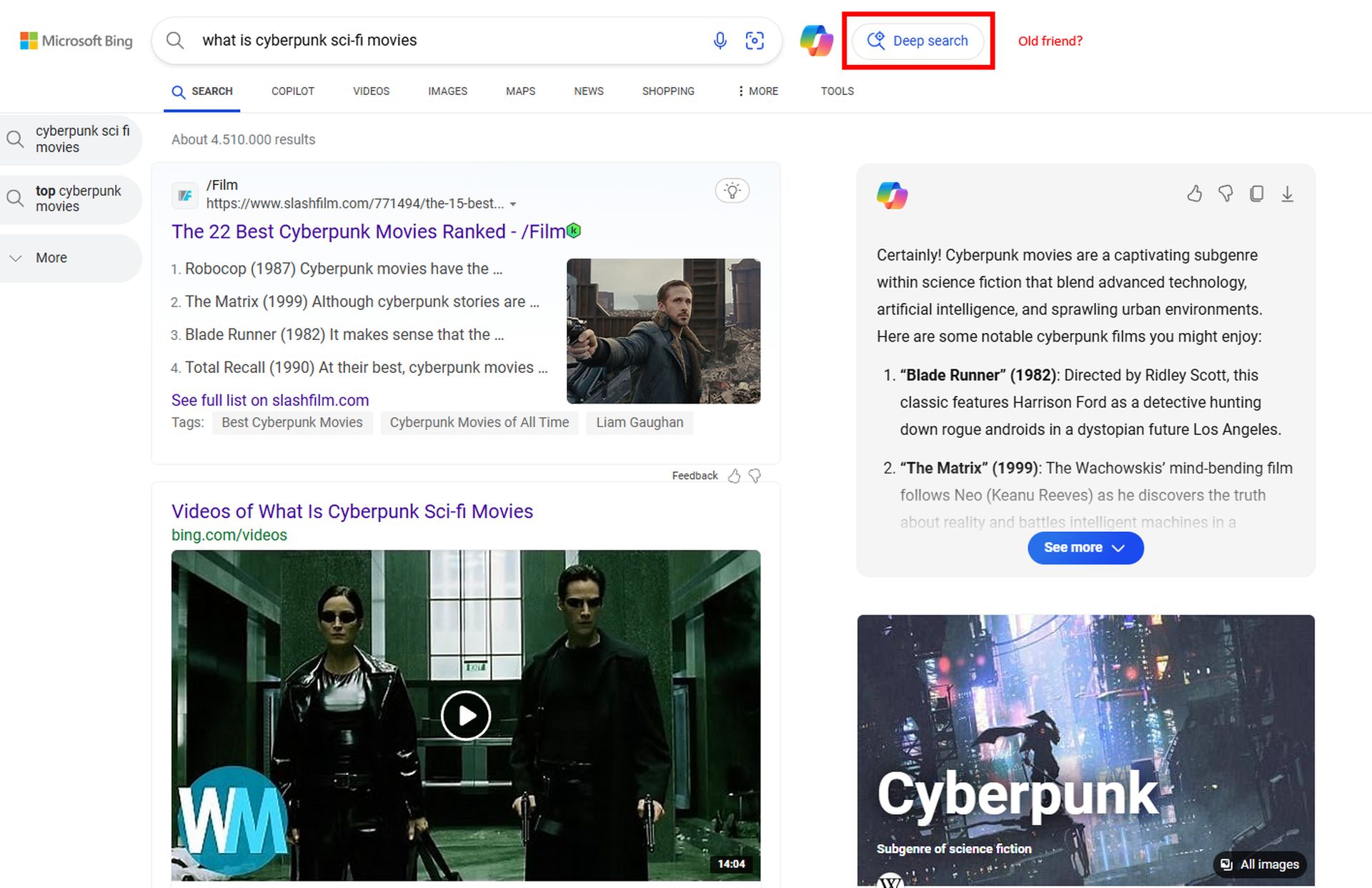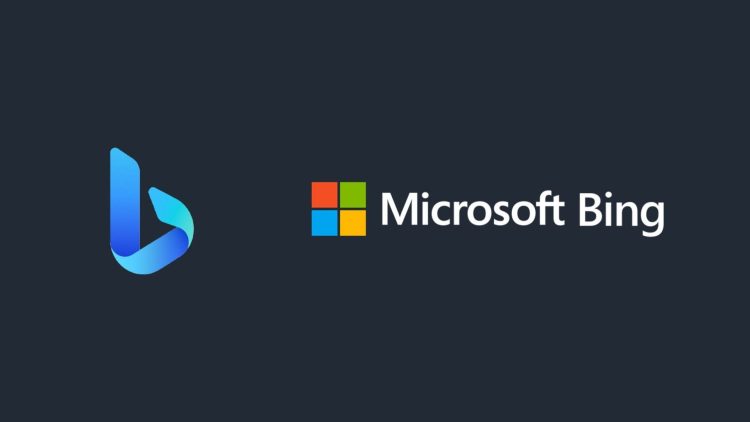Microsoft shows that it is still possible to rival Google with Bing generative search. This smart new tool promises to spice up our search sessions with a dash of artificial intelligence. Because why not?
Bing generative search combines the power of big language models (LLMs) with traditional search results. It offers a more dynamic and personalized search experience by creating customized answers to user queries. When you type a question, Bing generative search doesn’t just list links, it instantly creates a new AI-generated answer.
The magic behind Bing generative search
How does the Bing generative search work its magic? It’s all about understanding what you’re asking and finding the best way to answer it. But isn’t that the main job of search engines anyway? This clever system scans millions of online sources and selects the most relevant pieces of information. It then organizes this data into a new, easy-to-read format that directly addresses your query.
But don’t worry – Bing generative search isn’t trying to replace the classic search results you know and love. Those trusted links are still there, front and center. The AI-generated content is just an extra help alongside the actual information.

Bing generative search in action
Let’s say you’re curious about spaghetti westerns. Type that into Bing, and the generative search kicks into gear. You’ll get a neat summary of this film style, covering its history, famous examples, and more. The best part? Everything is written in clear, simple language that’s easy to understand.
Want to learn more? No problem. Bing generative search includes links to its sources, so you can dive deeper into any topic that catches your eye. It’s like having a knowledgeable friend who always knows where to find the best information.
Bing is taking things slowly with this new feature. They are rolling it out slowly to make sure everything works smoothly before more people try it. The team is keeping a close eye on how Bing generative search affects web traffic and making sure it plays well with the rest of the internet ecosystem.

The first signs look good. Bing reports that clicks to websites have remained steady and they are even adding more clickable links to the results generated by the AI. It’s all part of their plan to create a search experience that is useful for users and fair for content creators.
As Bing continues to fine-tune its generative search feature, it wants to hear what users think. If you’re one of the lucky few who have had the chance to test this feature, feel free to share your views. Look for the like and dislike icons at the top of the results, or click the feedback button at the bottom of the page to comment in more detail.
What happened to the Bing deep search?
Bing’s journey in search technology has been quite the page-turner. First, we had Bing deep search, which acted like a digital detective, digging deeper into complex questions. Now, Bing generative search takes center stage, turning the search engine into a creative wordsmith. While Deep Search focuses on thorough analysis and synthesis of existing information, generative search goes a step further. It doesn’t just find answers – it crafts them on the spot using artificial intelligence.

This new chapter in Bing’s story shows how search engines are becoming more like helpful assistants, understanding what we’re asking and serving up custom-made responses. It’s like going from having a really smart librarian to having a knowledgeable friend who can explain things in their own words. Both Deep Search and generative search aim to make our online quests for knowledge easier and more insightful, but generative search adds that extra sprinkle of AI-powered creativity to the mix.
Featured image credit: Microsoft





